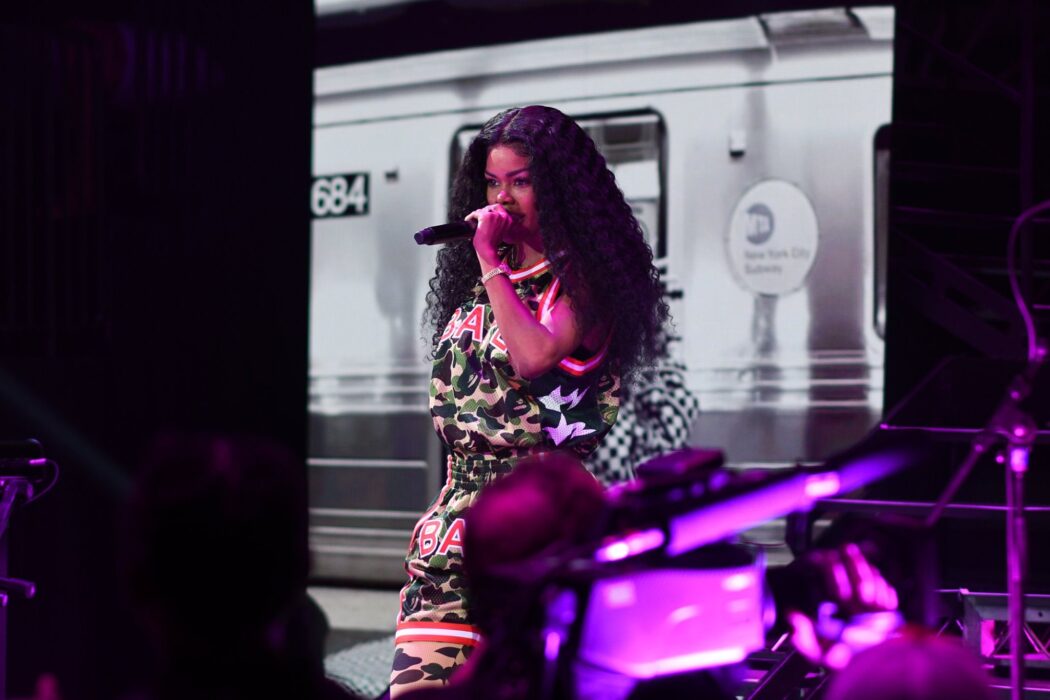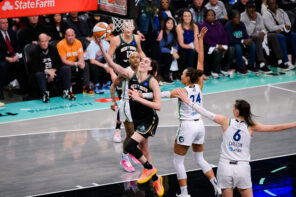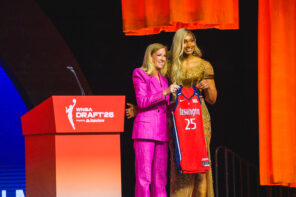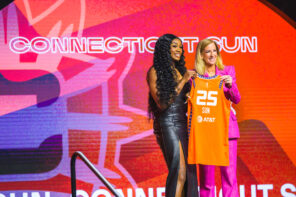Around the conclusion of 2022, the WNBA on its Twitter was counting down its most memorable moments of the season. That could have easily been A’ja Wilson winning her first WNBA championship with the Las Vegas Aces.
It also could have been how Chelsea Gray became a whole cheat code in the playoffs.
Or it could have been Allie Quigley’s triumph at the 3-point contest in her home city of Chicago.
Instead, it was a relatively pedestrian exchange between Sue Bird and Diana Taurasi.
Do not get us wrong – we are as proud of Bird for the career she had in the W with the Seattle Storm and we are certain that what she and Megan Rapinoe have planned for their next act in life will certainly be worthwhile.
Do not get us wrong – we admire Taurasi’s commitment to keep playing even at her age when she could have arguably already retired from the WNBA as the goat.
But it seems – especially given how last season’s was Bird’s final as an active WNBA player – that there was a concerted effort to make the whole season about her riding off into the sunset with so much else being ignored. This was not only seemingly the case with the WNBA itself – but with its media partners, particularly ESPN.
We lamented this for much of last season how it was also the final season of the great Sylvia Fowles, but it appeared that much of the “final season” coverage was given to Bird when both her and Sweet Syl were equally deserving of their flowers.
And of course, the racial overtones of such coverage and programming decisions cannot be ignored.
This is the part where our beloved WNBA needs to take a hard look at itself in the mirror – and it needs to set a new year’s resolution for itself to redouble its marketing efforts – particularly in terms of Black players (which make up the vast majority of its players) and Black culture.
We have seen individual teams get this when they unveiled their promotional schedule videos via their social media. Remember the Atlanta Dream’s schedule release video that highlighted the much-ballyhooed Black roller skating culture of the city? That was marketing genius 101.
The New York Liberty have been steadfastly highlighting Black-owned businesses in and around the city (particularly in Brooklyn) with regularity. The Dream and Liberty are two examples of teams who get, but that is what happens when a team has diverse ownership as Atlanta does with Renee Montgomery and the Lib have with Clara Wu and Joe Tsai.
Just as the WNBA was willing to listen to its players when it came to the implementation of the CBA, it also needs to do the same when marketing to the masses. And the W does not need to be ashamed to market to the masses it all. When one is the most successful women’s league there and is attracting talent from all over the world, that should be validation enough for the W.
But it certainly is time for the WNBA to move into a new and more cultural direction with its marketing. Whenever major celebrities or pop culture figures shout out the league, those are marketing opportunities it should go all in with.
Yes, we laud Taurasi as the GOAT. But who is currently the face of the league right now? No. 22 for the Las Vegas Aces. Wilson was a champion at the South Carolina preps level at Heathwood Hall. She was a champion at South Carolina under the tutelage of Dawn Staley. She is an international champion and now she has her first WNBA ring.
Oh, and it certainly helps that she is on the cover of Ruffles bags (and needs to be on our Wheaties boxes). The WNBA needs to give this Black queen a (as they say in the wrestling business) push like there is no tomorrow.
To the WNBA’s credit, we are seeing more players visible in commercials. The coins are finally flowing in the direction of players from major corporations and we want to see that exponentially continue in the future. We have seen Sabrina Ionescu in State Farm commercials. We have seen Candace Parker, Sue Bird and Jonquel Jones in Carmax commercials. We are seeing more WNBA players (and their jerseys) in music videos. This needs to continue into 2023 and beyond.
And yeah, this also means the WNBA becoming an even bigger priority for Black- and Brown-owned media as well. Who wouldn’t want to listen to A’ja Wilson on The Breakfast Club or Candace Parker on Rickey Smiley’s morning show? Or the numerous programs and podcasts that are out there hosted by Black, Brown or Asian influencers?
The WNBA’s cultural relevancy is on the rise – and it is because the players are leveraging their use of social media to grow their brands, which creates a domino effect where it increases the overall power of the league’s brand itself. It is also because of the rising power that incredible personalities such as Ari Chambers and Khristina Williams have in making the WNBA more mainstream than it already is.
The blueprint is there as far as marketing the league and making the W an even bigger force. Cathy Engelbert needs to study the film and follow the playbook.




